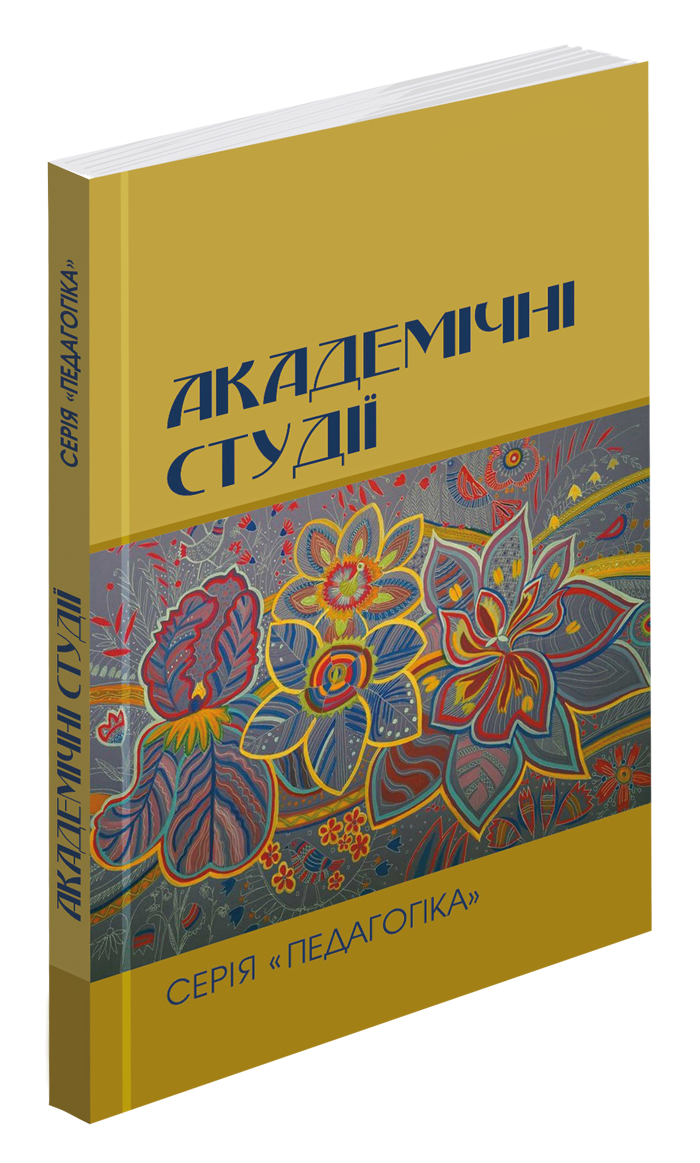Abstract
The environment includes educational, scientific, and professional components, which together foster knowledge development, creativity, and professional self-growth for future PhDs. The diversity of interpretations of environments in higher education reflects efforts to create an optimal setting that fosters students’ creative potential and personal growth. The object of the article is the culture of academic integrity among future Doctors of Philosophy, and the subject is the environmental component of the system for developing the culture of academic integrity in future Doctors of Philosophy. The purpose is characteristics of environmental component of the system of forming academic integrity culture for PhDs. The concept of a professionally oriented educational-scientific environment for PhD candidates integrates academic, ethical, and value-based components to support their development. This environment should evolve through four stages: preparatory, integrative, interactive, and productive, each designed to nurture professional competencies and academic integrity. The preparatory stage, managed by university staff, sets the groundwork for academic training, including document formation, resource planning, and risk analysis. Key components of this stage include qualified staffing, ethics training, and ensuring access to educational infrastructure. The integrative stage begins with the first year of graduate study, where PhD candidates immerse themselves in the academic environment, adapting to new challenges and aligning their personal values with the system. This stage fosters ethical growth through professional disciplines, research ethics, and extracurricular activities, all aimed at shaping ethical behavior and self-realization. Active participation in cultural, social, and humanitarian initiatives enhances their creative potential and understanding of professional values. Through collaboration with experienced educators and researchers, PhD candidates strengthen their academic integrity and leadership skills, while contributing to research innovations and societal issues. This dynamic environment nurtures the holistic development of future scholars, ensuring they become ethical, well-rounded professionals. The concluding productive stage occurs in the third and fourth years of graduate school, focusing on refining professional skills through educational, scientific, and extracurricular activities. PhD candidates actively engage in teaching, research, and academic projects, deepening their knowledge and contributing to the academic environment. They internalize key ethical principles such as honesty, responsibility, and professionalism, applying them in their academic and professional work. By the end of their training, future doctors of philosophy solidify their personal and professional values, aligning them with universal principles and generating their own meanings in their field.
References
Білоус О. В., Самойленко П. В., Проєктування індивідуальної освітньої траєкторії студента у ході педагогічної практики. Актуальні питання природничо-математичної освіти. Вип. 1(15). 2020. С. 83–91.
Братко М. Структура освітнього середовища вищого навчального закладу. Наукові записки Кіровоградського державного педагогічного університету імені Володимира Винниченка. Сер. : Педагогічні науки. 2015. Вип. 135. С. 67.
Бурак В. Г. Професійна підготовка майбутніх фахівців готельно-ресторанної справи: дефінітивний аналіз. Педагогічний альманах : збірник наукових праць. Херсон : КВНЗ «Херсонська академія неперервної освіти», 2020. Випуск 46. С. 124–131.
Волківська Д. А. Суб’єктний підхід до структури університетського середовища. Дослідження молодих учених у контексті розвитку сучасної науки : матеріали VI щорічної Всеукраїнської науково-практичної конференції. Київ. 2016. С. 10.
Ігнатович О. М., Татаурова-Осика Г. П., Шевенко А. М. Психологія професійної діагностики та професійного консультування : практичний посібник. Кропивницький. : Імекс-ЛТД, 2021. 131c.
Лобода О.Є. Феномен «освітнє середовище» з позицій сучасних підходів його осмислення. Освітній портал Класичного приватного університету. Педагогіка формування творчої особистості у вищій і загальноосвітній школах. Запоріжжя. 2021 р., № 77, Т. 2. C. 19. URL: http://pedagogy-journal.kpu.zp.ua/archive/2021/77/part_2/5.pdf
МР ЗВО ПП АкДч Методичні рекомендації для закладів вищої освіти з підтримки принципів академічної доброчесності. URL: https://osvita.ua/doc/files/news/622/62228/recomendatsii.pdf
Новгородський Р. Г., Махоткіна Л. Б. Вивчення стану інтеграції студентської молоді в освітнє середовище закладу вищої освіти. Наукові записки. Серія «Психолого-педагогічні науки». 2019. № 3. С. 66–74
Рябченко В. Університетське середовище та його вплив на розвиток особистості студента: актуалізація проблеми з позиції світоглядно-компетентнісного підходу. Університети і лідерство. 2018. № 2. С. 72–116.
Свердан М.М., Свердан М.Р. Основи наукових досліджень : навчальний посібник. Чернівці : Рута, 2006. 352 c.
Тодорова І. Психологічні чинники толерантності студентів до академічної недоброчесності. Психологія і особистість. 2019. № 2. С. 116.
Федій О. Філософські підходи до осмислення категорії середовище. Філософські обрії. Соціальна філософія. Філософія науки. 2016. № 36. С. 88–97.
Цехмістрова Г. С. Основи наукових досліджень : навч. посіб. К. : ВД “Слово”, 2003. 240 c.
Шейко В. М., Кушнаренко Н. М. Організація та методика науководослідницької діяльності : підручник. 5-те вид., стер. К. : Знання, 2006. 307c.
Шишкіна Є. К., Носирєв О. О. Методологія наукових досліджень: навч. посіб. Х. : Вид-во «Діса плюс». 2014. 200 c.
Kuzmenko A., Biriukova D., Tiahlo N., Tiahlo L. Means of forming a Culture of academic integrity of postgraduate students: experience of Ukraine and the European Union. Journal of curriculum and teaching. Vol. 13, № 3, Special issue. 2024. Sciedu Press. P. 136–146 (Scopus)

